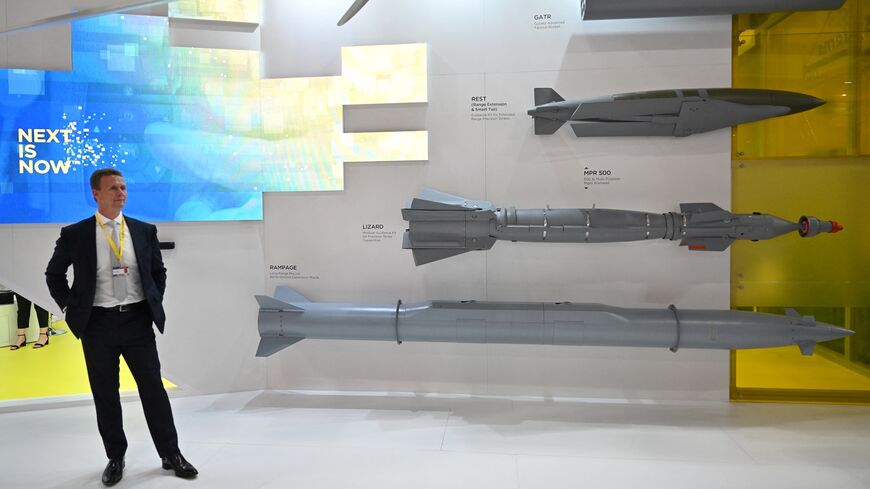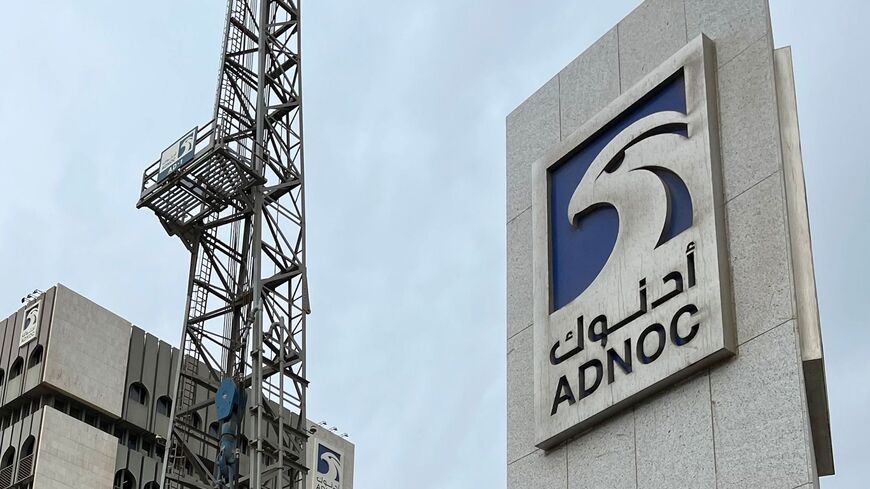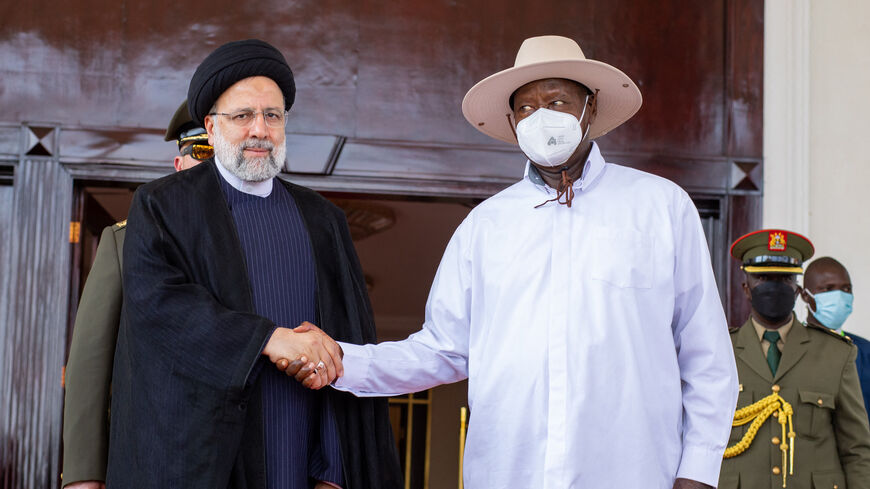Growing demand for AI to spare Israel from prolonged tech downturn
Al-Monitor Pro Members
David Rosenberg
Israeli reporter specializing in business, economics and politics
April 5, 2023
Israel’s artificial intelligence sector will struggle in the coming year to take full advantage of the rapidly growing demand for AI products and services due to a sharp drop globally in high-tech funding and a chronic shortage of AI talent. However, medium-term prospects remain robust due to the sector’s strong human capital base, large number of multinational companies present in Israel conducting research in the field, government support and cutting-edge academic research. The government’s decision March 27 to pause its controversial judicial-reform overhaul for now at least lifts a threat to the AI sector and the tech industry generally.
- Despite the absence of large government or corporate spending by global standards, Israel has developed into a major global center for artificial intelligence. The Global AI Index ranks Israel fifth after the United States, China, Britain and Canada.
- Measuring the size of the AI industry, in general, is difficult. Although many companies deploy AI in their products, only a small number are actually developing AI software and hardware (deep AI). Figures from Israeli AI database StartupHub.ai, including deep AI and AI-based companies, show fundraising in Israel peaked in 2021 at $18.8 billion, fell 40% last year to $11.5 billion and amounted to just $722 million in the first quarter of 2023 – a similar trajectory to high-tech fundraising generally.
- Israel’s competitive advantages in AI are a strong culture of entrepreneurialism and innovation, much of it originating in the army, aided by the presence of scores of multinational AI-focused R&D centers. Israeli academic and government budgets for AI are small, but Israel has leveraged the resources that are available to it. Companies frequently develop commercial applications for academic AI research done abroad.
- While generative AI technologies like ChatGPT are garnering the most attention, the main drivers in Israel are more prosaic areas, such as AI chips, computer vision and natural language processing (NLP). Industry sources cite as leading players AI21 Labs (NLP), Hailo AI (edge device processors), Neu Reality (AI chips), Run AI (Infrastructure tools), Mobileye (computer vision) and Pecan AI (predictive analytics). A key Israeli subsegment is computer vision for healthcare.
- Global demand for AI is forecast to grow sharply in the wake of ChatGPT. More verticals are adopting AI for applications such as healthcare, financial services, banking and agriculture, to name a few. More companies are being built from scratch with AI at their center. IT data provider International Data Corporation expects the global AI market for software, hardware and services to show a compound annual growth rate of 18.6% over 2022-2026 to reach $900 billion.
- However, AI’s short-term growth potential is being undercut by a sharp decline in startup funding in Israel and globally. Industry tracker Israel Venture Capital Research estimates that total startup fundraising in Israel may fall to between $4 billion and $6 billion in 2023, down from $15 billion in 2022 and a record $25.9 billion in 2021.
- Another obstacle to AI growth shared by the Israeli and global industry is a persistent shortage of specialized talent. Industry layoffs in Israel over the past year are unlikely to fundamentally alleviate the problem, especially in AI. On the positive side, the Israel Defense Forces is very AI-focused, and its elite units (8200, 900 and 81) serve as important and growing training grounds for future AI talent.
- Funding and human capital challenges are compounded by government plans to curb the power of the Supreme Court and politicize the judiciary. This has already led some tech companies to move capital and R&D operations out of Israel. Going forward, it may also deter foreign investment and the development of more R&D centers. The government pledged on March 27 to suspend the legislative process, lifting the immediate threat, but it has not abandoned the goal.
- Government support for AI has strengths and weaknesses. On the positive side, the Israel Innovation Authority actively supports the sector with R&D grants. The government makes its centralized, fully digitized medical database available to commercial users, which is an important asset for AI firms developing healthcare applications. On the negative side, overall support for R&D is less than $450 million a year. Additional dedicated government funding for AI is slated at about $125 million annually in 2023-24 with the money spent subsidizing both private sector and academic research. The government has yet to roll out a national AI policy.
Scenario 1: Although it will have to contend with an agonizing global tech environment, Israel’s AI industry will fare better than much of the Israeli tech industry in the coming year due to growing global interest in AI and a global shortage of AI talent.
That said, even late-stage companies remain unprofitable and will be forced by the poor fundraising environment to cut payrolls in order to stretch out existing capital. In the medium term, the Israeli AI industry should track the recovery of global tech, which hinges on an easing of global monetary tightening and the greater availability of startup capital, and the outcome of the judicial reforms. Labor shortages, however, will continue to put a cap on growth even as the industry rebounds. The government’s decision to suspend its judicial overhaul will likely lead to a more acceptable version of the plan lifting the threat it posed to the tech and AI industry.
Scenario 2: The Israeli industry fails to leverage the growing global demand for AI technology.
A prolonged global technology slump prevents AI startups from raising capital and many fail for lack of funds even though they have promising technology. Meanwhile, countries with far larger government and university budgets as well as big multinational companies such as Microsoft and Amazon crowd out smaller players and startups of the kind that comprise the Israeli industry. A deteriorating business environment in Israel due to the judicial overhaul and persistent talent shortages causes leading entrepreneurs and AI experts to start up companies overseas rather than at home.
Although the Israeli AI industry faces considerable long-term challenges in the global race for AI leadership, in the medium term it enjoys uniquely strong human capital assets and a well-established start-up culture, as well as considerable government support in terms of army training and tech development and state R&D subsidies. Israeli companies can draw on local academic research and have also proven adept at commercializing advances made at universities overseas. Growing global interest in AI following the launch of ChatGPT should enable Israel to leverage these resources, although the current downturn of startup fundraising worldwide and the uncertain political environment in Israel will undercut the local industry’s ability to fully exploit the short-term opportunities. A prolonged global tech slump would force many startups to fail, including promising ones. However, given the fundamental demand for AI technology going forward, a prolonged downturn does not seem likely.
David Rosenberg has more than 30 years experience reporting, commenting and speaking on business, economics and politics in Israel and the Middle East. He has worked for Reuters, The Jerusalem Post and Dow Jones, and was bureau chief for Israel for Bloomberg News. He is the author of two books (Cloning Silicon Valley, 2001, and Israel’s Technology Economy, 2018) and has been published in The Wall Street Journal and Foreign Policy. He now writes commentary for the Haaretz daily.
We're glad you're interested in this memo.
Memos are one of several features available only to PRO Expert members. Become a member to read the full memos and get access to all exclusive PRO content.

Already a Member? Sign in
The Middle East's Best Newsletters
Join over 50,000 readers who access our journalists dedicated newsletters, covering the top political, security, business and tech issues across the region each week.
Delivered straight to your inbox.
Free
What's included:
Free newsletters available:
- The Takeaway & Week in Review
- Middle East Minute (AM)
- Daily Briefing (PM)
- Business & Tech Briefing
- Security Briefing
- Gulf Briefing
- Israel Briefing
- Palestine Briefing
- Turkey Briefing
- Iraq Briefing
Premium Membership
Join the Middle East's most notable experts for premium memos, trend reports, live video Q&A, and intimate in-person events, each detailing exclusive insights on business and geopolitical trends shaping the region.
$25.00 / month
billed annually
$31.00 / month
billed monthly
What's included:
Memos - premium analytical writing: actionable insights on markets and geopolitics.
Live Video Q&A - Hear from our top journalists and regional experts.
Special Events - Intimate in-person events with business & political VIPs.
Trend Reports - Deep dive analysis on market updates.
We also offer team plans. Please send an email to pro.support@al-monitor.com and we'll onboard your team.
Already a Member? Sign in







